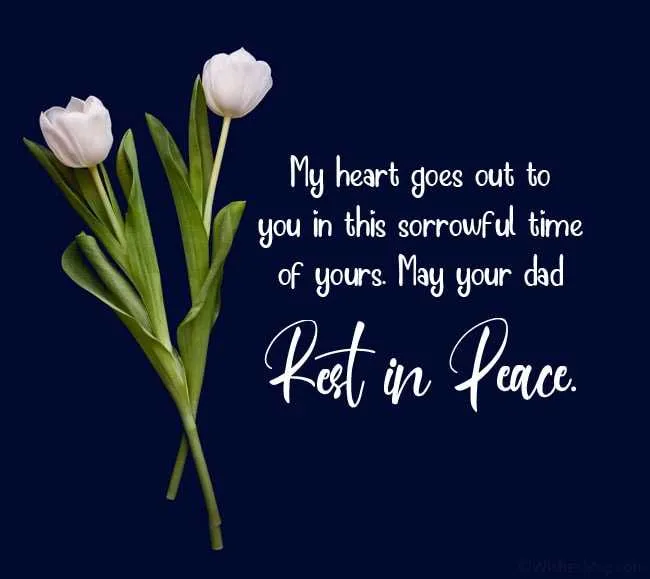Thoughtful Sympathy Messages to Share on a Loved One’s Death Anniversary

Offer a specific memory that you shared with the person who passed away. A short, personal story creates a sincere connection and shows that you remember them not just as someone who died, but as someone who lived. For example: “I still smile when I think about the time your father helped us fix the old swing set – he was patient, kind, and never gave up.”
Write directly to the person you’re supporting. Use their name. Avoid abstract phrases. Instead of saying “thinking of you”, say “You’ve been on my mind today, Maria, and I wanted you to know I remember your brother’s kindness on this date.” That kind of message offers clarity and care without sounding distant.
Keep it brief unless the relationship calls for something longer. A few lines can carry weight if they’re grounded in truth and spoken naturally. Choose words that reflect how you’d speak in person, not formal expressions you wouldn’t normally say aloud.
Close with warmth. Not with platitudes. Try something like: “Sending you calm thoughts as you reflect today” or “Wishing you moments of peace as you honor their memory”. These phrases strike a balance between emotional honesty and comfort.
Sympathy Message for Death Anniversary
Choose words that speak directly to the memory of the person lost and the pain still felt. Avoid vague expressions. Be sincere, short, and thoughtful. A clear message makes a greater impact than long-winded sentiments.
- Personalize your message: Mention the person by name. Say something specific about them – a shared memory, a quality they had, or what you miss.
- Acknowledge the date: Say you’re aware it’s the anniversary and you’re thinking of them. This matters more than grand phrases.
- Offer genuine support: Don’t say “Let me know if you need anything.” Instead, suggest something concrete: “Would you like some company this evening?” or “I’ll drop off dinner today.”
- Keep religious references appropriate: Only include faith-based phrases if you’re sure the recipient finds comfort in them.
- Examples of what to say:
- “I’m thinking of you today. I remember how Mark always made us laugh with his quiet jokes.”
- “One year. I know it still hurts. I’m here if you want to talk or just sit quietly.”
- “I know today is heavy. I lit a candle this morning for Maria.”
Be brief if you’re unsure. A short, honest message is better than no message at all. Avoid trying to fix the pain – just acknowledge it.
How to Choose the Right Words for a Death Anniversary Card
Speak directly and with intention. Avoid vague language. Instead of saying, “Thinking of you,” write, “I’ve been remembering the stories you shared about your father’s kindness and warmth.” This makes your message personal and grounded in real memories.
Use the person’s name. It shows respect and keeps their memory alive. For example, write, “Sarah’s laughter still echoes in our hearts,” instead of a generic phrase like “your loved one.”
Keep it brief but meaningful. A sentence or two is often enough. You could say, “I lit a candle today for Marcus. He always brought calm to every room,” rather than a long message that risks sounding impersonal.
Avoid generic expressions of comfort. Skip phrases like “They’re in a better place.” Focus instead on what the person brought to your life: “Your mother’s generosity shaped so many of us.”
If you didn’t know the deceased well, mention your support. Say, “I know today must be hard. I’m here if you want to talk.” This is more helpful than pretending to know their grief.
Write with care. Read your message aloud before sending it. If it feels honest and kind, it’s likely just right.
Writing a Thoughtful Message for a Close Friend’s Loss
Say their loved one’s name. Avoid general phrases–acknowledging the person directly brings warmth and authenticity. For example: “I’ve been thinking a lot about Marcus today.”
Mention a specific memory. Shared experiences help your friend feel seen in their grief. Try: “I still smile remembering how he made everyone laugh at your birthday dinner.”
Recognize their ongoing grief without trying to fix it. Use simple, steady language: “I know this day is heavy. I’m here for you, however you need.”
Offer something concrete. Avoid vague offers like “let me know if you need anything.” Say: “I’d love to drop off dinner this evening if that would help.”
Keep your tone real. Don’t write like you’re trying to impress. Just speak like a friend who cares. If it sounds like something you’d say out loud, it’s probably right.
End with presence, not pressure. You’re not trying to cheer them up–you’re standing with them. Try: “Thinking of you today, and holding space for whatever you’re feeling.”
What to Say on Social Media When Remembering Someone’s Loved One
Write a brief, sincere message that focuses on the person being remembered, not the loss itself. Mention their name. For example: “Thinking of Michael today. His kindness and quick wit still make me smile.”
Avoid vague expressions. Be specific: highlight a memory, a trait, or something they loved. Example: “I’ll never forget how Sarah made every birthday feel special with her handmade cards.”
Tag close family or friends only if you’re certain they’re open to public acknowledgments. If unsure, send a private message instead.
Stay personal, but respectful. Avoid comparing losses or offering advice. This isn’t the place for long reflections about grief unless you were very close to the person and know their family would appreciate it.
If you post a photo, choose one that reflects who they were, not just their passing. A picture from a happy moment can bring comfort.
End your post with something supportive, like “Thinking of everyone who loved him” or “Sending quiet support to her family today.”